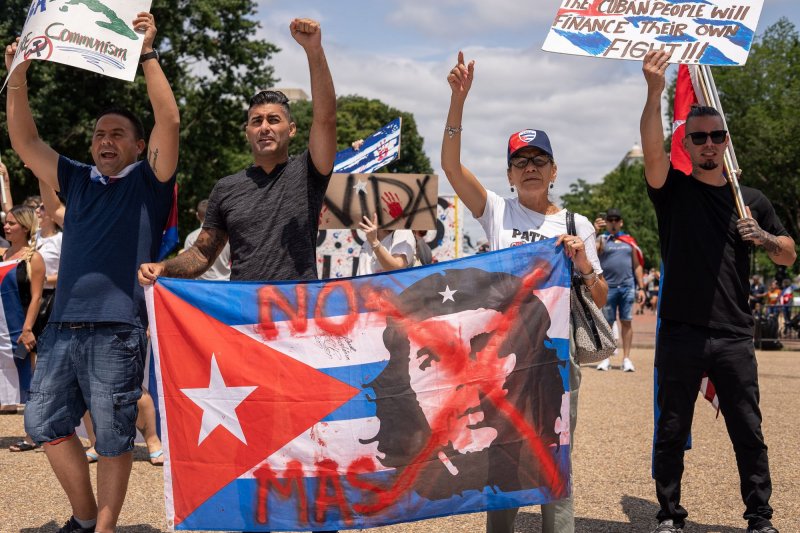
July 27 (UPI) — The Cuban Embassy in France late Monday said it was the victim of a Molotov cocktail attack that it blamed the United States for inciting.
In a statement, the Cuban mission in Paris said two individuals overnight Monday threw three Molotov cocktails at its building, causing its facade and entrance to catch fire.
The embassy described the incident as a”terrorist attack.” No one was injured but material damage was incurred, it said.
“Terrorist acts like this are encouraged by U.S. government campaigns against our country by inciting actions using violence,” the embassy said. “The Cuban Embassy condemns this criminal and terrorist act perpetrated against Cuban representation and diplomatic personnel credited in France.”
Bruno Rodriguez, Cuba’s foreign minister, issued a statement denouncing the attack and reiterating that Cuba holds the United States responsible.
The Cuban Ministry of Foreign affairs published photos online of a small fire supposedly near its Paris mission.
The attack came as the United States continues to mount pressure on Cuba following the outbreak earlier this month of the largest anti-government protests seen in decades in the communist nation against an economic crisis that has been exasperated by the coronavirus pandemic.
The Cuban economy has contacted 11% in 2020 due to the pandemic, a lack of financial support from socialist Venezuela and U.S. economic sanctions, according to the Congressional Research Service.
The United States has maintained a controversial trade embargo of economic sanctions on Cuba since the 1960s tailored to isolated the nation. The United Nations General Assembly has for nearly 30 years demanded it be repealed.
Under the Obama administration, the policy shifted toward an opening up with Havana, a plan that was reversed under the Trump administration.
The current Biden administration was conducting a review of its policy toward the island nation when the protests hit, which Cuban President Miguel Diaz-Canel was quick to blame the United States for.
After the protests of July 11, President Joe Biden issued a statement of solidarity with those rallying against the Cuban government, and on Thursday sanctioned Cuban officials over “serious human rights abuse and corruption.”
In the United States, protests have erupted in support of the Cuban protests. Protesters have also demonstrated in support of the Cuban government, spray painting “CUBA LIBRE” on the street outside Havana’s mission in Washington, meaning “free Cuba.”
Hours before the Molotov cocktail attack on the embassy, U.S. Secretary of State Antony Blinken along with the foreign ministers of 20 countries issued a joint statement condemning Havana’s response to the protests, including mass arrests and detentions of demonstrators.
“We call on the Cuban government to respect the legally guaranteed rights and freedoms of the Cuban people without fear of arrest and detention,” they said. “We urge the Cuban government to release those detained for exercising their rights to peaceful protest.”
Rodriguez described the statement as evidence of the United States’ isolation on the world stage, as only 20 countries supported it compared to the 184 that voted last month in the United Nations General Assembly to repeal the U.S. embargo.
The statement is “the pyrrhic result of a week of extreme pressures and unbelievable slanders,” he said via Twitter. “[The State Department] should be ashamed for the discredit.”